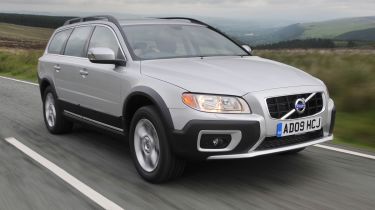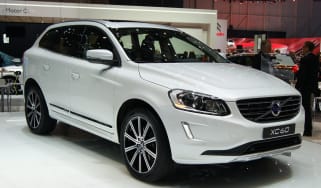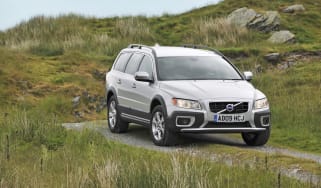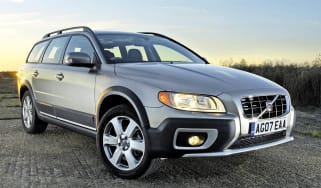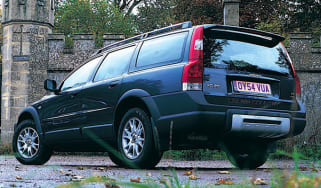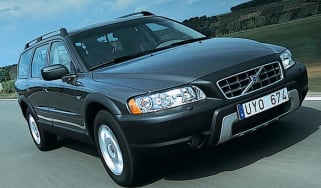Volvo XC70 (2007-2016) review
The Volvo XC70 offers plenty of practicality, comfort and can tackle the rough stuff, too

The Volvo XC90 is a jacked-up, four-wheel-drive version of the Volvo V70 estate, intended to give some reassuring off-road capability to the practical family wagon. It's a rival for the likes of the Audi A6 Allroad and Volkswagen Passat Alltrack.
Just like the standard V70, the XC70 is practical and beautifully built, with a comfortable, high-quality interior but it should be able to go further in snowy, icy or muddy conditions. Depending on where in the UK you live, that ability could be vital at certain times of the year. Setting the XC70 apart from the regular estate are plastic body cladding and metal sump guards. It also has longer-travel suspension, which means it rides better – although this inevitably results in more body roll when driving through corners. Overall, the XC70 should prove to be tough, dependable and practical family transport, especially for those who don't like driving crossovers or SUVs such as Volvo's XC60 and XC90.
Engines, performance and drive
With soft, long-travel suspension for better off-road performance, the XC70 rides very comfortably on rough or potholed roads. It's a smooth motorway cruiser, too, however once you hit a twisty back road, you'll find it suffers from a good deal more body roll than the standard V70 through corners. When you do tackle the rough stuff, the XC70 doesn't disappoint. It has an impressive four-wheel-drive system and a full 210mm of ground clearance to avoid large rocks and ruts. Two diesels and one petrol engine are available. The latter is a 300bhp T6 that delivers rapid acceleration but will be quite heavy on fuel. The diesels are a better compromise: the 161bhp D4 is more than sufficient while the 212bhp D5 has a nice bit of extra shove.
MPG, CO2 and Running Costs
Avoid the XC70 T6 petrol model if you want to keep costs down. The 300bhp engine is undoubtedly fast, but consumes fuel at an alarming rate – and residual values suffer as a result. The 161bhp D4 diesel with a manual gearbox is the most efficient drivetrain for the XC70, returning 51.4mpg and emitting only 144g/km of CO2. Even with those impressive figures, the car still goes from 0-60mph in 9.6 seconds. Volvo servicing can be quite expensive, and the XC70 won't match the residual values of an Audi or BMW.
Interior, design and technology
Volvo has not made the XC70 look hugely different to the V70 on which it's based. It's simply jacked up the suspension, added some plastic body cladding and fitted metal scuff plates under the front and rear bumpers. The end result does add poise and presence to the car, although it's not exactly attractive. Things are better inside, where Volvo's trademark floating centre console is the stand-out feature. The driver's controls are all user friendly and logically laid-out – particularly the intuitive buttons for the ventilation system.
Practicality, comfort and boot space
Volvo estates have always majored on practicality, and the XC70 continues that trend. Rear-seat passengers enjoy plenty of head and legroom, while a low loading lip and flat-folding rear seats mean it's easy to make the most of the 575-litre boot (which expands 1,600 litres with the seats lowered). Clever storage spaces can be found throughout the cabin: there's a rubbish bin in the back and an umbrella holder built into the tailgate.
Reliability and Safety
All of Volvo's engines and transmissions are well proven and have an excellent reliability record. XC70 owners are more likely to encounter electronic problems - specifically affecting the central locking system and engine immobiliser. Elsewhere, Volvo's longstanding commitment to best-in-class safety is reflected in the V70's maximum five-star Euro NCAP crash-test score, and there is a long list of passive and active safety systems available for the XC70.
